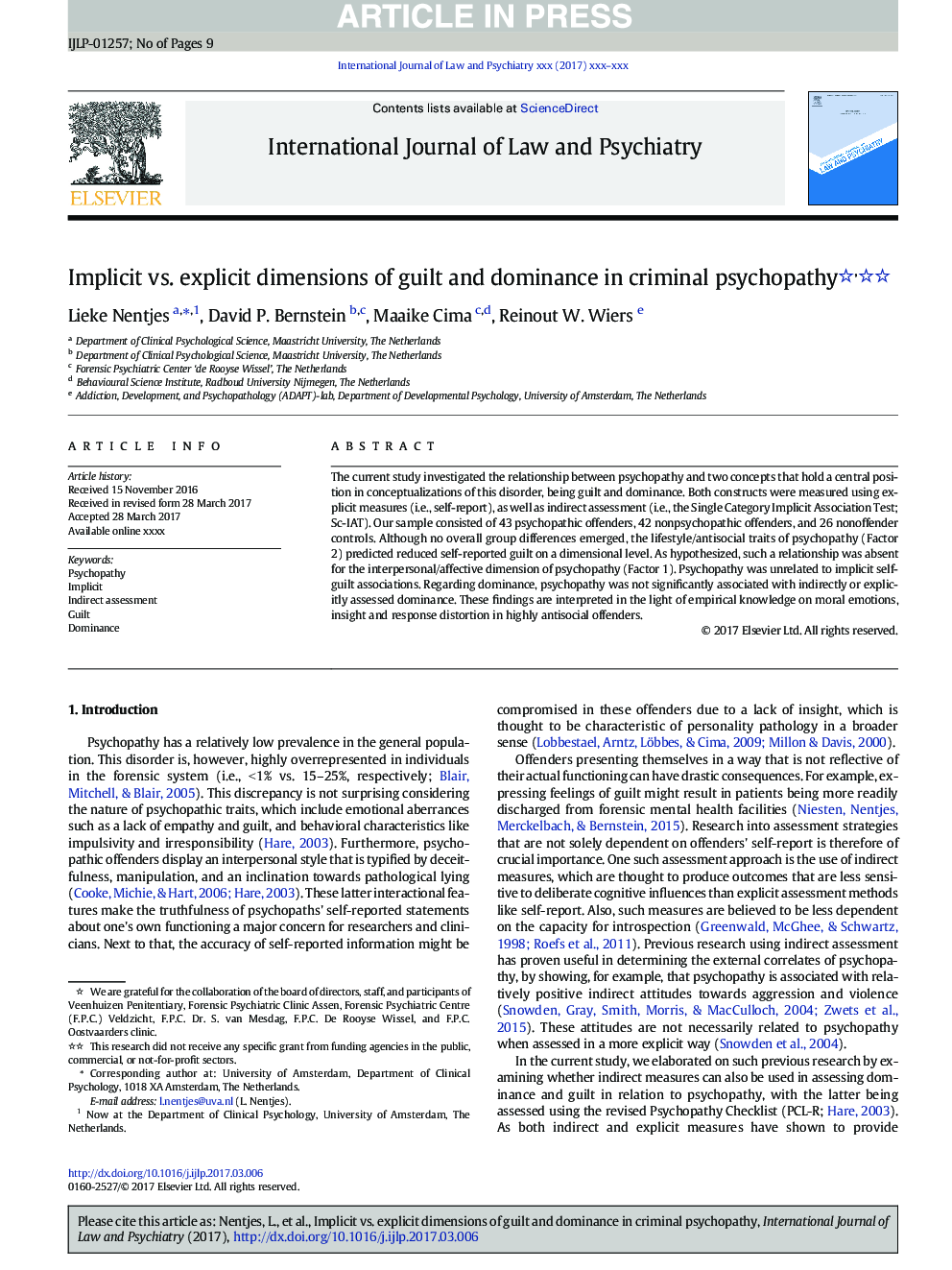| Article ID | Journal | Published Year | Pages | File Type |
|---|---|---|---|---|
| 4760489 | International Journal of Law and Psychiatry | 2017 | 9 Pages |
Abstract
The current study investigated the relationship between psychopathy and two concepts that hold a central position in conceptualizations of this disorder, being guilt and dominance. Both constructs were measured using explicit measures (i.e., self-report), as well as indirect assessment (i.e., the Single Category Implicit Association Test; Sc-IAT). Our sample consisted of 43 psychopathic offenders, 42 nonpsychopathic offenders, and 26 nonoffender controls. Although no overall group differences emerged, the lifestyle/antisocial traits of psychopathy (Factor 2) predicted reduced self-reported guilt on a dimensional level. As hypothesized, such a relationship was absent for the interpersonal/affective dimension of psychopathy (Factor 1). Psychopathy was unrelated to implicit self-guilt associations. Regarding dominance, psychopathy was not significantly associated with indirectly or explicitly assessed dominance. These findings are interpreted in the light of empirical knowledge on moral emotions, insight and response distortion in highly antisocial offenders.
Related Topics
Health Sciences
Medicine and Dentistry
Forensic Medicine
Authors
Lieke Nentjes, David P. Bernstein, Maaike Cima, Reinout W. Wiers,
